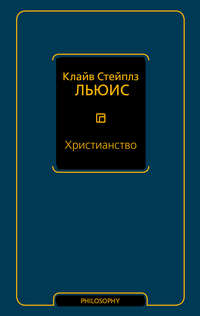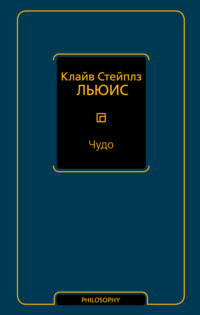
Полная версия
How to Pray


Copyright
William Collins
An imprint of HarperCollinsPublishers Ltd
1 London Bridge Street
London SE1 9GF
WilliamCollinsBooks.com
First published in Great Britain by William Collins in 2018
First published in the United States by HarperOne in 2018
God in the dock. Copyright © 1967 by C. S. Lewis Pte. Ltd. Published by Eerdmans.
Letters to an American lady. Copyright © 1967 by C. S. Lewis Pte. Ltd. Published by Eerdmans.
How to Pray. Copyright © 2018 by C. S. Lewis Pte. Ltd. All rights reserved.
Every effort has been made to obtain permissions for pieces quoted or adapted in this work. If any required acknowledgments have been omitted, or any rights overlooked, it is unintentional. Please notify the publishers of any omission, and it will be rectified in future editions.
Cover Designer: Jack Smyth
Designed by Yvonne Chan
All rights reserved. No part of this publication may be reproduced, stored in a retrieval system, or transmitted, in any form or by any means, electronic, mechanical, photocopying, recording or otherwise, without the prior permission of the publishers.
Source ISBN: 9780008192549
Ebook Edition © June 2018 ISBN: 9780008307103
Version: 2018-07-18
Epigraph
Master, they say that when I seem
To be in speech with you,
Since you make no replies, it’s all a dream
—One talker aping two.
They are half right, but not as they
Imagine; rather, I
Seek in myself the things I meant to say,
And lo! the wells are dry.
Then, seeing me empty, you forsake
The Listener’s role, and through
My dead lips breathe and into utterance wake
The thoughts I never knew.
And thus you neither need reply
Nor can; thus, while we seem
Two talking, thou art One forever, and I
No dreamer, but thy dream.
“PRAYER,” POEMS
Contents
COVER
TITLE PAGE
COPYRIGHT
EPIGRAPH
PREFACE
CAN PRAYER BE PROVEN TO WORK?
WHY MAKE REQUESTS OF GOD IF HE ALREADY KNOWS WHAT WE NEED?
DO OUR PRAYERS DEPEND ON HOW DEEPLY WE FEEL OR MEAN THEM?
ISN’T IT PRESUMPTUOUS FOR US TO BRING OUR CONCERNS BEFORE GOD?
HOW DOES PRAYER FIT WITH THE IDEA OF GOD’S PROVIDENCE? ARE WE ASKING FOR MIRACLES WHEN WE PRAY?
DOES PRAYER REQUIRE MORBID INTROSPECTION OF OUR SINS?
WHAT ARE TIPS FOR AVOIDING GOD AND PRAYER ALTOGETHER? (A DEVIL’S PERSPECTIVE)
Part 1: Make Sure Your Prayers Are Especially “Spiritual”
Part 2: Believe You Are Not a Very Good Christian
Part 3: Treat Prayers as Tests of God
Part 4: Focus on Your Own State of Mind
HOW DOES PRAYER BECOME A REGULAR PRACTICE FOR US?
HOW CAN WE GET OUT OF OUR OWN WAY AND PRAY?
HOW DO WE MAKE SURE IT IS THE REAL “I” WHO STANDS BEFORE THE REAL “THOU” IN PRAYER?
HOW CAN WE BE LIKE DAVID AND PRAY WITH DELIGHT?
HOW DO WE MAKE SENSE OF WHAT THE NEW TESTAMENT TEACHES ABOUT PRAYER?
HOW DO WE PRAY WHILE GRIEVING?
CAN WE PRAY TO AVOID SUFFERING IF IT IS GOOD FOR OUR SOUL?
HOW DO WE STAY HOPEFUL WHEN GOD REPEATEDLY SAYS NO TO OUR REQUESTS FOR RELIEF?
SOURCE WORKS
ABOUT THIS BOOK
ABOUT THE AUTHOR
ALSO IN THE SERIES
ALSO AVAILABLE FROM HARPERCOLLINS
ABOUT THE PUBLISHER

PREFACE
C. S. LEWIS is widely recognized as one of the twentieth century’s leading defenders and explainers of the Christian faith, especially through his classic works Mere Christianity, The Screwtape Letters, Miracles, The Problem of Pain, and more. What is ironic is that in private Lewis often expressed how his weakest moments were just after he had successfully defended a Christian idea or doctrine. What sustained him, though, was his commitment to living out what he saw as his ordinary Christian practices: attending church, practicing charity and hospitality, examining his motives and actions to lessen his weaknesses, confessing his sins, and strengthening what needed strengthening. And he prayed.
It is not surprising that a teacher of Christian faith would pray regularly, and it is easy to overlook the regular mentions of prayer in Lewis’s many letters over the years. “I will keep you in my prayers” sounds like a cliché, even though phrases like this appear often and regularly in his correspondence. Taken as a whole, these many references reveal something important: that Lewis took his practice of prayer seriously. If we are paying attention, it soon becomes apparent that Lewis routinely committed to praying for people, that he kept lists of such requests, tracking and updating them over time, that he had his own list of requests, that he often prayed traditional prayers from the prayer book as well as practicing many other forms of prayers besides making petitions, and he regularly dispensed advice on issues surrounding prayer. In his published work, the subject of prayer pops up regularly. In other words, Lewis spent a lot of time practicing, thinking about, and writing about prayer.
It is also clear that Lewis saw all this as wholly unremarkable. In a brief letter of August 1949, Lewis said to a friend, “I don’t feel I could write a book on Prayer: I think it would be rather ‘cheek’ of my part.” He obviously changed his mind in that he began writing such a book, though it was only published posthumously as Letters to Malcolm: Chiefly on Prayer. But even here, the emphasis is explaining how to think about prayer more than providing a primer on praying (though some of that leaks through).
By publishing this new volume entitled How to Pray, we are making the argument that what Lewis saw as unremarkable is still remarkably important. By reading the pieces included here, it becomes clear that it was Lewis’s long-term commitment to the practice of prayer that helps explain why his teachings have such depth and vibrancy even after many decades. Lewis never reduces the faith to mere intellectual or philosophical problems. Instead, his apologetic work was merely one dimension of what he experienced as a much larger reality, a reality grounded in a relationship with the living God. Even issues regarding prayer are presented within the larger frame of this relational foundation.
In How to Pray, we have tried to gather Lewis’s wisdom on prayer sprinkled throughout his books, essays, letters, and poems—all of which appear within this volume. And because Lewis wrote as a lifelong practitioner of prayer, what he says is often wise, striking, and deep, which will not be a surprise to anyone who has looked to Lewis as a Christian guide and mentor before. For the sake of consistency and cohesion, we have retitled the pieces in the form of questions about prayer that the pieces could be said to answer. The pieces’ original titles and sources are listed on the opening page of each chapter and at the end of the book. In each of the chapters, you will also find shorter excerpts on the topic as sidebars. We are indebted to and thankful for the thorough work of Zachary Kincaid, who researched and selected these pieces. Our hope in presenting this volume is that people will not only celebrate Lewis for what he said about Christianity but also for how he lived as a Christian. I hope by the end of the book you will say amen to that.
MICHAEL G. MAUDLIN
Senior vice president and executive editor
HarperOne

CAN PRAYER BE PROVEN TO WORK?

The World’s Last Night (from “The Efficacy of Prayer”).
SOME YEARS AGO I got up one morning intending to have my hair cut in preparation for a visit to London, and the first letter I opened made it clear I need not go to London. So I decided to put the haircut off too. But then there began the most unaccountable little nagging in my mind, almost like a voice saying, “Get it cut all the same. Go and get it cut.” In the end I could stand it no longer. I went. Now my barber at that time was a fellow Christian and a man of many troubles whom my brother and I had sometimes been able to help. The moment I opened his shop door he said, “Oh, I was praying you might come today.” And in fact if I had come a day or so later I should have been of no use to him.
It awed me; it awes me still. But of course one cannot rigorously prove a causal connection between the barber’s prayers and my visit. It might be telepathy. It might be accident.
I have stood by the bedside of a woman whose thighbone was eaten through with cancer and who had thriving colonies of the disease in many other bones as well. It took three people to move her in bed. The doctors predicted a few months of life; the nurses (who often know better), a few weeks. A good man laid his hands on her and prayed. A year later the patient was walking (uphill, too, through rough woodland) and the man who took the last X-ray photos was saying, “These bones are as solid as rock. It’s miraculous.”
But once again there is no rigorous proof. Medicine, as all true doctors admit, is not an exact science. We need not invoke the supernatural to explain the falsification of its prophecies. You need not, unless you choose, believe in a causal connection between the prayers and the recovery.
The question then arises, “What sort of evidence would prove the efficacy of prayer?” The thing we pray for may happen, but how can you ever know it was not going to happen anyway? Even if the thing were indisputably miraculous it would not follow that the miracle had occurred because of your prayers. The answer surely is that a compulsive empirical proof such as we have in the sciences can never be attained.
Some things are proved by the unbroken uniformity of our experiences. The law of gravitation is established by the fact that, in our experience, all bodies without exception obey it. Now even if all the things that people prayed for happened, which they do not, this would not prove what Christians mean by the efficacy of prayer. For prayer is request. The essence of request, as distinct from compulsion, is that it may or may not be granted. And if an infinitely wise Being listens to the requests of finite and foolish creatures, of course He will sometimes grant and sometimes refuse them. Invariable “success” in prayer would not prove the Christian doctrine at all. It would prove something much more like magic—a power in certain human beings to control, or compel, the course of nature.
There are, no doubt, passages in the New Testament which may seem at first sight to promise an invariable granting of our prayers. But that cannot be what they really mean. For in the very heart of the story we meet a glaring instance to the contrary. In Gethsemane the holiest of all petitioners prayed three times that a certain cup might pass from Him. It did not. After that the idea that prayer is recommended to us as a sort of infallible gimmick may be dismissed.
Other things are proved not simply by experience but by those artificially contrived experiences which we call experiments. Could this be done about prayer? I will pass over the objection that no Christian could take part in such a project, because he has been forbidden it: “You must not try experiments on God, your Master.” Forbidden or not, is the thing even possible?
I have seen it suggested that a team of people—the more the better—should agree to pray as hard as they knew how, over a period of six weeks, for all the patients in Hospital A and none of those in Hospital B. Then you would tot up the results and see if A had more cures and fewer deaths. And I suppose you would repeat the experiment at various times and places so as to eliminate the influence of irrelevant factors.
The trouble is that I do not see how any real prayer could go on under such conditions. “Words without thoughts never to heaven go,” says the King in Hamlet. Simply to say prayers is not to pray; otherwise a team of properly trained parrots would serve as well as men for our experiment. You cannot pray for the recovery of the sick unless the end you have in view is their recovery. But you can have no motive for desiring the recovery of all the patients in one hospital and none of those in another. You are not doing it in order that suffering should be relieved; you are doing it to find out what happens. The real purpose and the nominal purpose of your prayers are at variance. In other words, whatever your tongue and teeth and knees may do, you are not praying. The experiment demands an impossibility.
Empirical proof and disproof are, then, unobtainable. But this conclusion will seem less depressing if we remember that prayer is request and compare it with other specimens of the same thing.
We make requests of our fellow creatures as well as of God: we ask for the salt, we ask for a raise in pay, we ask a friend to feed the cat while we are on our holidays, we ask a woman to marry us. Sometimes we get what we ask for and sometimes not. But when we do, it is not nearly so easy as one might suppose to prove with scientific certainty a causal connection between the asking and the getting.
Your neighbour may be a humane person who would not have let your cat starve even if you had forgotten to make any arrangement. Your employer is never so likely to grant your request for a raise as when he is aware that you could get better money from a rival firm and is quite possibly intending to secure you by a raise in any case. As for the lady who consents to marry you—are you sure she had not decided to do so already? Your proposal, you know, might have been the result, not the cause, of her decision. A certain important conversation might never have taken place unless she had intended that it should.

An ordinary simple Christian kneels down to say his prayers. He is trying to get into touch with God. But if he is a Christian he knows that what is prompting him to pray is also God: God, so to speak, inside him. But he also knows that all his real knowledge of God comes through Christ, the Man who was God—that Christ is standing beside him, helping him to pray, praying for him. You see what is happening. God is the thing to which he is praying—the goal he is trying to reach. God is also the thing inside him which is pushing him on—the motive power. God is also the road or bridge along which he is being pushed to that goal. So that the whole threefold life of the three-personal Being is actually going on in that ordinary little bedroom where an ordinary man is saying his prayers. The man is being caught up into the higher kinds of life—what I called Zoe or spiritual life: he is being pulled into God, by God, while still remaining himself.
—MERE CHRISTIANITY
Thus in some measure the same doubt that hangs about the causal efficacy of our prayers to God hangs also about our prayers to man. Whatever we get we might have been going to get anyway. But only, as I say, in some measure. Our friend, boss, and wife may tell us that they acted because we asked; and we may know them so well as to feel sure, first that they are saying what they believe to be true, and secondly that they understand their own motives well enough to be right. But notice that when this happens our assurance has not been gained by the methods of science. We do not try the control experiment of refusing the raise or breaking off the engagement and then making our request again under fresh conditions. Our assurance is quite different in kind from scientific knowledge. It is born out of our personal relation to the other parties; not from knowing things about them but from knowing them.
Our assurance—if we reach an assurance—that God always hears and sometimes grants our prayers, and that apparent grantings are not merely fortuitous, can only come in the same sort of way. There can be no question of tabulating successes and failures and trying to decide whether the successes are too numerous to be accounted for by chance. Those who best know a man best know whether, when he did what they asked, he did it because they asked. I think those who best know God will best know whether He sent me to the barber’s shop because the barber prayed.
For up till now we have been tackling the whole question in the wrong way and on the wrong level. The very question “Does prayer work?” puts us in the wrong frame of mind from the outset. “Work”: as if it were magic, or a machine—something that functions automatically. Prayer is either a sheer illusion or a personal contact between embryonic, incomplete persons (ourselves) and the utterly concrete Person. (Prayer in the sense of petition, asking for things, is a small part of it; confession and penitence are its threshold, adoration its sanctuary, the presence and vision and enjoyment of God its bread and wine.) In it God shows Himself to us. That He answers prayers is a corollary—not necessarily the most important one—from that revelation. What He does is learned from what He is.
Petitionary prayer is, nonetheless, both allowed and commanded to us: “Give us our daily bread.” And no doubt it raises a theoretical problem. Can we believe that God ever really modifies His action in response to the suggestions of men? For infinite wisdom does not need telling what is best, and infinite goodness needs no urging to do it. But neither does God need any of those things that are done by finite agents, whether living or inanimate. He could, if He chose, repair our bodies miraculously without food; or give us food without the aid of farmers, bakers, and butchers; or knowledge without the aid of learned men; or convert the heathen without missionaries. Instead, He allows soils and weather and animals and the muscles, minds, and wills of men to co-operate in the execution of His will. “God,” said Pascal, “instituted prayer in order to lend to His creatures the dignity of causality.” But not only prayer; whenever we act at all He lends us that dignity. It is not really stranger, nor less strange, that my prayers should affect the course of events than that my other actions should do so. They have not advised or changed God’s mind—that is, His overall purpose. But that purpose will be realized in different ways according to the actions, including the prayers, of His creatures.
For He seems to do nothing of Himself which He can possibly delegate to His creatures. He commands us to do slowly and blunderingly what He could do perfectly and in the twinkling of an eye. He allows us to neglect what He would have us do, or to fail. Perhaps we do not fully realize the problem, so to call it, of enabling finite free wills to co-exist with Omnipotence. It seems to involve at every moment almost a sort of divine abdication. We are not mere recipients or spectators. We are either privileged to share in the game or compelled to collaborate in the work, “to wield our little tridents.” Is this amazing process simply Creation going on before our eyes? This is how (no light matter) God makes something—indeed, makes gods—out of nothing.
So at least it seems to me. But what I have offered can be, at the very best, only a mental model or symbol. All that we say on such subjects must be merely analogical and parabolic. The reality is doubtless not comprehensible by our faculties. But we can at any rate try to expel bad analogies and bad parables. Prayer is not a machine. It is not magic. It is not advice offered to God. Our act, when we pray, must not, any more than all our other acts, be separated from the continuous act of God Himself, in which alone all finite causes operate.

“Praying for particular things,” said I, “always seems to me like advising God how to run the world. Wouldn’t it be wiser to assume that He knows best?” “On the same principle,” said he, “I suppose you never ask a man next to you to pass the salt, because God knows best whether you ought to have salt or not. And I suppose you never take an umbrella, because God knows best whether you ought to be wet or dry.” “That’s quite different,” I protested. “I don’t see why,” said he. “The odd thing is that He should let us influence the course of events at all. But since He lets us do it in one way, I don’t see why He shouldn’t let us do it in the other.”
—“SCRAPS,” GOD IN THE DOCK
It would be even worse to think of those who get what they pray for as a sort of court favorites, people who have influence with the throne. The refused prayer of Christ in Gethsemane is answer enough to that. And I dare not leave out the hard saying which I once heard from an experienced Christian: “I have seen many striking answers to prayer and more than one that I thought miraculous. But they usually come at the beginning: before conversion, or soon after it. As the Christian life proceeds, they tend to be rarer. The refusals, too, are not only more frequent; they become more unmistakable, more emphatic.”
Does God then forsake just those who serve Him best? Well, He who served Him best of all said, near His tortured death, “Why hast thou forsaken me?” When God becomes man, that Man, of all others, is least comforted by God, at His greatest need. There is a mystery here which, even if I had the power, I might not have the courage to explore. Meanwhile, little people like you and me, if our prayers are sometimes granted, beyond all hope and probability, had better not draw hasty conclusions to our own advantage. If we were stronger, we might be less tenderly treated. If we were braver, we might be sent, with far less help, to defend far more desperate posts in the great battle.

WHY MAKE REQUESTS OF GOD IF HE ALREADY KNOWS WHAT WE NEED?

God in the Dock (from the chapter titled “Work and Prayer”).
“EVEN IF I grant your point and admit that answers to prayer are theoretically possible, I shall still think they are infinitely improbable. I don’t think it at all likely that God requires the ill-informed (and contradictory) advice of us humans as to how to run the world. If He is all-wise, as you say He is, doesn’t He know already what is best? And if He is all-good, won’t He do it whether we pray or not?”








